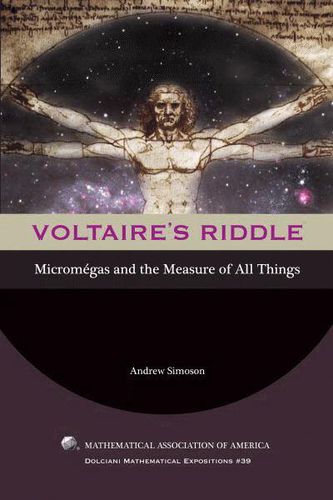Readings Newsletter
Become a Readings Member to make your shopping experience even easier.
Sign in or sign up for free!
You’re not far away from qualifying for FREE standard shipping within Australia
You’ve qualified for FREE standard shipping within Australia
The cart is loading…






In 1752 Voltaire published Micromegas, the story of a 120,000-foot tall resident of a planet of Sirius who visited our solar system. As a parting gift, the visitor gave the French Academy of Sciences a book that, he said, contained the answer to all things. On examination, the book was found to be blank. This is the riddle: why was it blank? Voltaire’s Riddle contains a new translation of the story and continues with a series of chapters, each of which begins with a historical or literary vignette followed by the mathematics behind it. Topics include trajectories of comets, the flattening of the Earth at the poles, Maupertius’s pursuit problem, Durer’s possible use of trochoids, and the precession of the equinoxes. The book ends with possible answers to Voltaire’s riddle. Readers need know little more than calculus.
$9.00 standard shipping within Australia
FREE standard shipping within Australia for orders over $100.00
Express & International shipping calculated at checkout
In 1752 Voltaire published Micromegas, the story of a 120,000-foot tall resident of a planet of Sirius who visited our solar system. As a parting gift, the visitor gave the French Academy of Sciences a book that, he said, contained the answer to all things. On examination, the book was found to be blank. This is the riddle: why was it blank? Voltaire’s Riddle contains a new translation of the story and continues with a series of chapters, each of which begins with a historical or literary vignette followed by the mathematics behind it. Topics include trajectories of comets, the flattening of the Earth at the poles, Maupertius’s pursuit problem, Durer’s possible use of trochoids, and the precession of the equinoxes. The book ends with possible answers to Voltaire’s riddle. Readers need know little more than calculus.